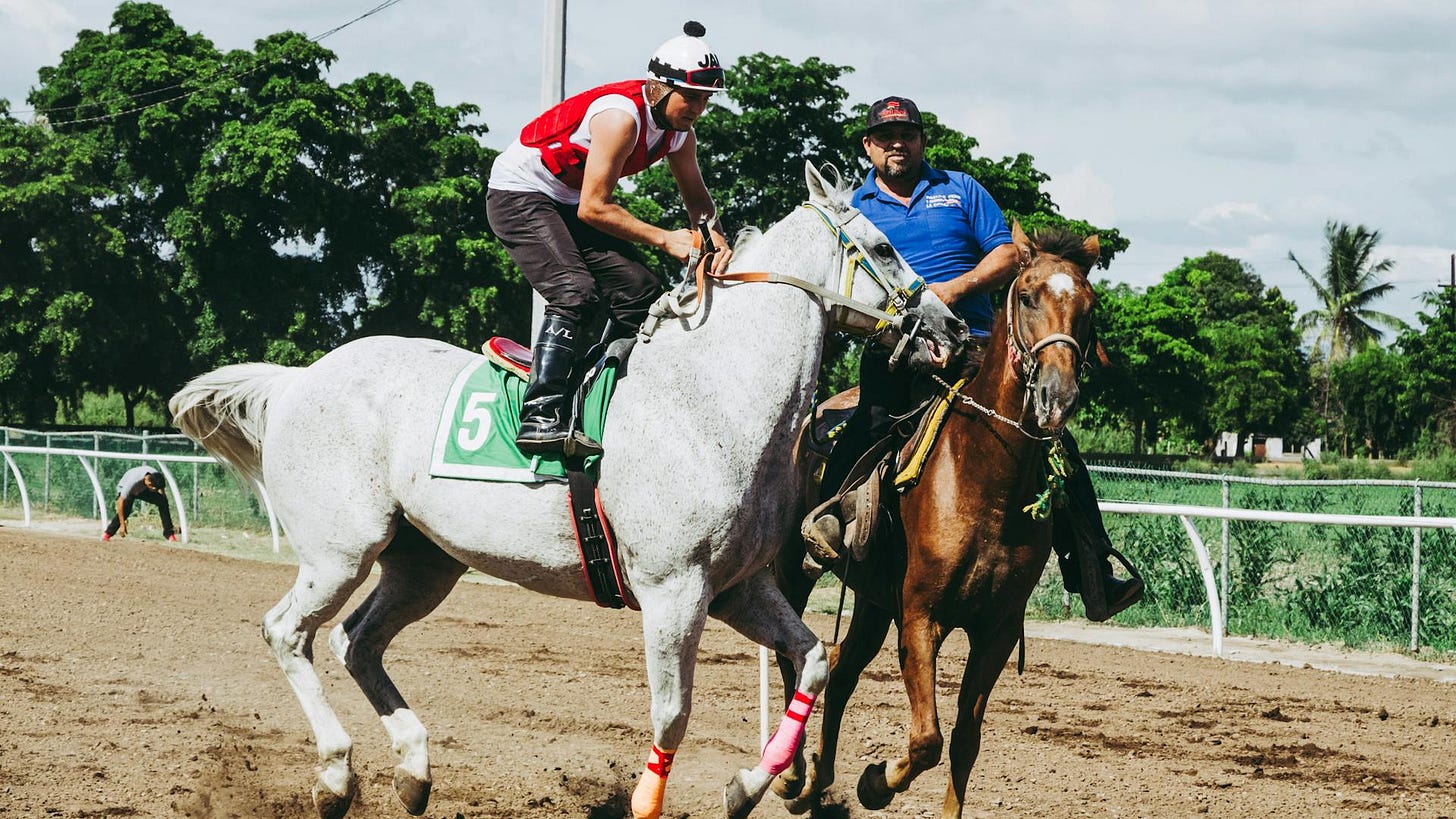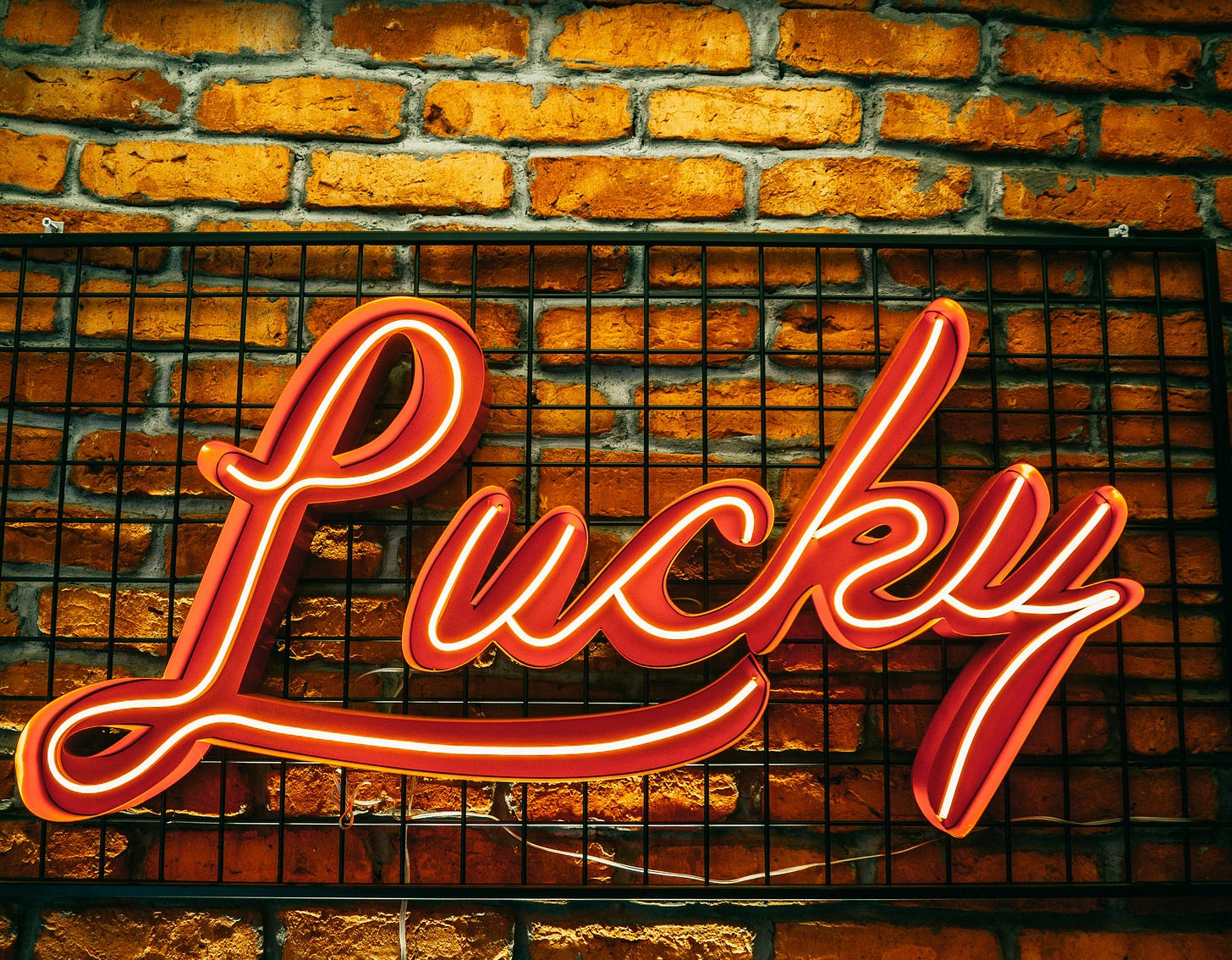
Indeed, "beginners' luck" isn't just a myth—it's a fascinating phenomenon many have experienced first-hand. Think back to a time when you tried something new and succeeded effortlessly despite having no prior experience or knowledge. That instant win, born from confidence and curiosity, is the magic of beginners' luck in action.
Therefore, I also sometimes refer to it as my ‘Ignorant luck.’ In mind of those times, I dived into something without hesitation, but I still reaped surprising victories.
Most often, I take it further to compare my performances from when I started and how I am doing now that I have experiences on my sleeve and sometimes wonder how I succeeded those first times.
I first came across this in the novel ‘The Alchemist.’ How some of the initial successes are nature’s way of not discouraging us from trying again, so it rewards us with beginner’s luck.
While introducing this concept may easily make one conclude that you only get lucky the first time and then have to keep enduring stagnation or failures until you figure out the next new thing to try your luck on, I want to equally use this article to highlight how your first trial victory is not merely being lucky.
Furthermore, I outline ways I have mastered harnessing this super lucky power to keep creating beginner’s luck throughout the journey.
Although I might often compare my beginner’s performances with how I am doing now and cringe at how poor they were, still that does not mean that I gambled my way into victory.
A good example is the number of rejections I have recently had with securing a scholarship, whereas I came to Europe in the first place through a scholarship. Even though now, I consider myself much more experienced with writing a statement of purpose complemented by a sound CV compared to the personal statement I wrote then and my CV.
In that case, in addition to not discrediting your beginner’s efforts and simply reducing them to sheer gambling or ignorant luck, below are other ways one could harness this super lucky power to start working for us more effectively.

Believe that beginner’s luck is real.
You may choose to remove the luck from it entirely since the word tends to undermine all the efforts you have put in at the initial stage. However, consider your successful first job interview; if you are a man, the first girl you wooed, etc. and how poorly you performed compared to now - well, your confidence to try without hesitation and yet, seeing surprising victories is worth acknowledging.
However, believing in beginner’s luck does not mean acting without preparation when you come across opportunities. Instead, it means not letting your initial inexperience stop you from trying something new.
Beginner’s luck is not finite; instead, it is expansive.
Upon acknowledging the existence of beginner’s luck, it is easy to also think of it as limited, something that can only happen once in a while over a lifetime, or something that only happens when you try new things.
Instead, think of it as something that is abundantly expansive. Consider how each year has the same number of months and each month the same number of days, but no two Januarys of the year or Mondays of the week are the same. Even if you are precisely in the same place doing the same thing at the same hour.
In my case, with the scholarship, I learned not to think this way: “I have been lucky with securing an international scholarship before; I may not be that lucky again” to thinking this way: “I have luckily secured an international scholarship before, this is the more reasons I should keep trying.”
If beginner’s luck is something which happens to beginners, keep being a beginner.
In one of my articles, ‘Age or Experience? The Creative Divide Between Young Geniuses and Old Masters’ I reflected on the work of economist David Galenson regarding creative careers.
In his analysis, he identified two distinct types of creatives. The first group, conceptualists, often produce their best work at a young age, driven by a singular, ground-breaking idea. In contrast, experimentalists tend to reach their peak later in life, with their masterpieces emerging gradually through a process of trial and error.
To summarise simply, conceptualists (young geniuses) find. Experimentalists (old masters) seek. However, to keep being a beginner who always enjoys beginner’s luck, it is important to draw on the strengths of these two distinct types of creatives regardless of your age, experience or how long you have been doing what you do.
Therefore, the balance between constantly pursuing ideas and reflecting through the processes and experiences gained is how to keep seeing beginner’s luck manifest. Having a beginner’s mindset while adapting the lessons from experiences is a reminder that sometimes, diving in without hesitation can lead to surprising victories.
Many thanks for reading my perspective and giving feedback.
My fervent wish is for the personal growth of everyone and the success of all young professionals who put their hearts and souls into finding their purpose in life.
If you find this content insightful and would like to join my community of wonderful people, which I am trying to build, please subscribe and connect with me.
Copyright © Ekene Moses, 2024. All Rights Reserved.




I think I can particularly relate to this post, I’ve had so much “beginners’ luck” in the past that when I fail, it actually discourages me to
try again. I’ll rather say “I’ve grown past that” or “maybe this one’s not for me, when mine comes I’ll know” just to compensate for my unwillingness to try something I thought I could “originally” do. This puts things into perspective for me, if I succeeded then, I’ll succeed again at it.
A beautiful piece with great lessons.
Thank you Ekene